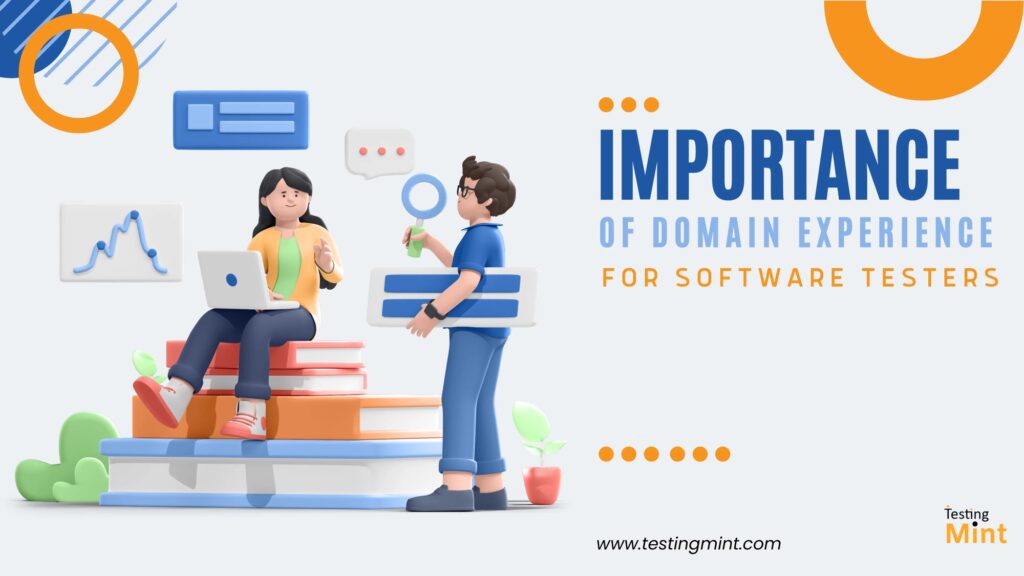As a software tester, you may have noticed that many job postings emphasize the need for experience in a specific domain. But why is domain experience so important in the world of software testing?
In this blog post, we will explore the reasons behind companies seeking domain expertise in software testers.
Understanding the Role of a Software Tester
Before getting into the significance of domain experience, let’s first understand the role of a software tester. Software testers play a crucial role in the software development process by evaluating software applications to ensure they meet quality standards and function correctly. Below are key responsibilities of a software tester:
- Designing test cases to verify the functionality of software applications
- Executing tests to detect any defects or issues in the software
- Reporting bugs and collaborating with developers to ensure timely resolution
- Conducting regression testing to ensure that previously fixed issues have not reappeared
- Participating in test planning and strategy discussions to enhance overall testing processes
By understanding the pivotal role of a software tester, we can better appreciate the importance of acquiring domain experience in optimizing testing practices and delivering high-quality software products.
What is Domain Experience?
Domain experience refers to knowledge and expertise in a specific industry or field. For example, a software tester working in the e-commerce domain would have a deep understanding of online shopping processes, payment gateways, and user experience considerations specific to e-commerce platforms. Similarly, a tester with domain experience in the banking sector would be familiar with financial regulations, security protocols, and transaction processing systems unique to banking applications.
Reasons Why Companies Seek Domain Experience?
1. Understanding Business Requirements:
Software testers with domain experience are better equipped to understand the business requirements of a particular industry. For instance, a tester with domain experience in the automotive sector would understand the unique challenges and user expectations related to automotive software applications, such as vehicle diagnostics, navigation systems, and driver assistance features.
2. Efficient Communication:
Domain experience facilitates effective communication between software testers, developers, and stakeholders. Testers who are well-versed in industry-specific terminology can convey information accurately and collaborate more efficiently with team members. For example, a tester with domain experience in the education sector would be able to communicate effectively with educators, administrators, and students to ensure that the software meets the specific needs of the education industry.
3. Faster Learning Curve:
Testers with domain expertise can quickly adapt to new projects within the same industry. Their existing knowledge enables them to grasp the intricacies of the software application faster, leading to quicker test execution and bug identification. For instance, a tester with domain experience in the healthcare domain would understand the criticality of patient data security, compliance requirements, and interoperability standards in healthcare software systems.
4. Improved Test Coverage:
Domain-experienced testers can anticipate potential issues based on their industry knowledge. This proactive approach helps in creating comprehensive test scenarios that cover all critical aspects of the software application. For example, a tester with domain experience in the travel and hospitality industry would consider factors like booking processes, payment integrations, and user experience across various devices while designing test cases for a travel booking platform.
5. Enhanced Problem-Solving Skills:
Domain experience enhances a tester’s problem-solving skills as they can draw on their industry knowledge to identify root causes of issues and suggest relevant solutions. This ability to think critically within the context of the domain is highly valued by companies. For instance, a tester with domain experience in the retail sector would leverage their understanding of supply chain processes, inventory management, and customer shopping behaviors to address issues related to e-commerce platforms effectively.
How to Gain Domain Experience as a Software Tester
1. Specialized Training:
Consider enrolling in courses or certifications that focus on a specific domain of interest. This formal training can provide you with in-depth knowledge and practical skills related to that industry. For example, taking a course in cybersecurity would equip you with domain expertise to test security features in software applications effectively.
2. Hands-On Projects:
Volunteer for projects or internships that expose you to real-world scenarios within a particular domain. Practical experience is invaluable in gaining domain expertise as a software tester. For instance, collaborating on a project to develop a mobile banking application would give you hands-on experience in testing financial transactions and security features specific to the banking domain.
3. Networking:
Build connections with professionals working in the industry you wish to specialize in. Networking can provide you with insights, mentorship, and opportunities to enhance your domain knowledge. For example, attending industry conferences or joining online forums related to a specific domain can help you stay updated on the latest trends and challenges in that industry.
Conclusion
domain experience plays a crucial role in the success of software testers by enabling them to understand business requirements, communicate effectively, learn quickly, achieve thorough test coverage, and enhance problem-solving skills. Companies value testers with domain expertise for their ability to contribute meaningfully to software development projects and deliver high-quality solutions tailored to specific industries.

